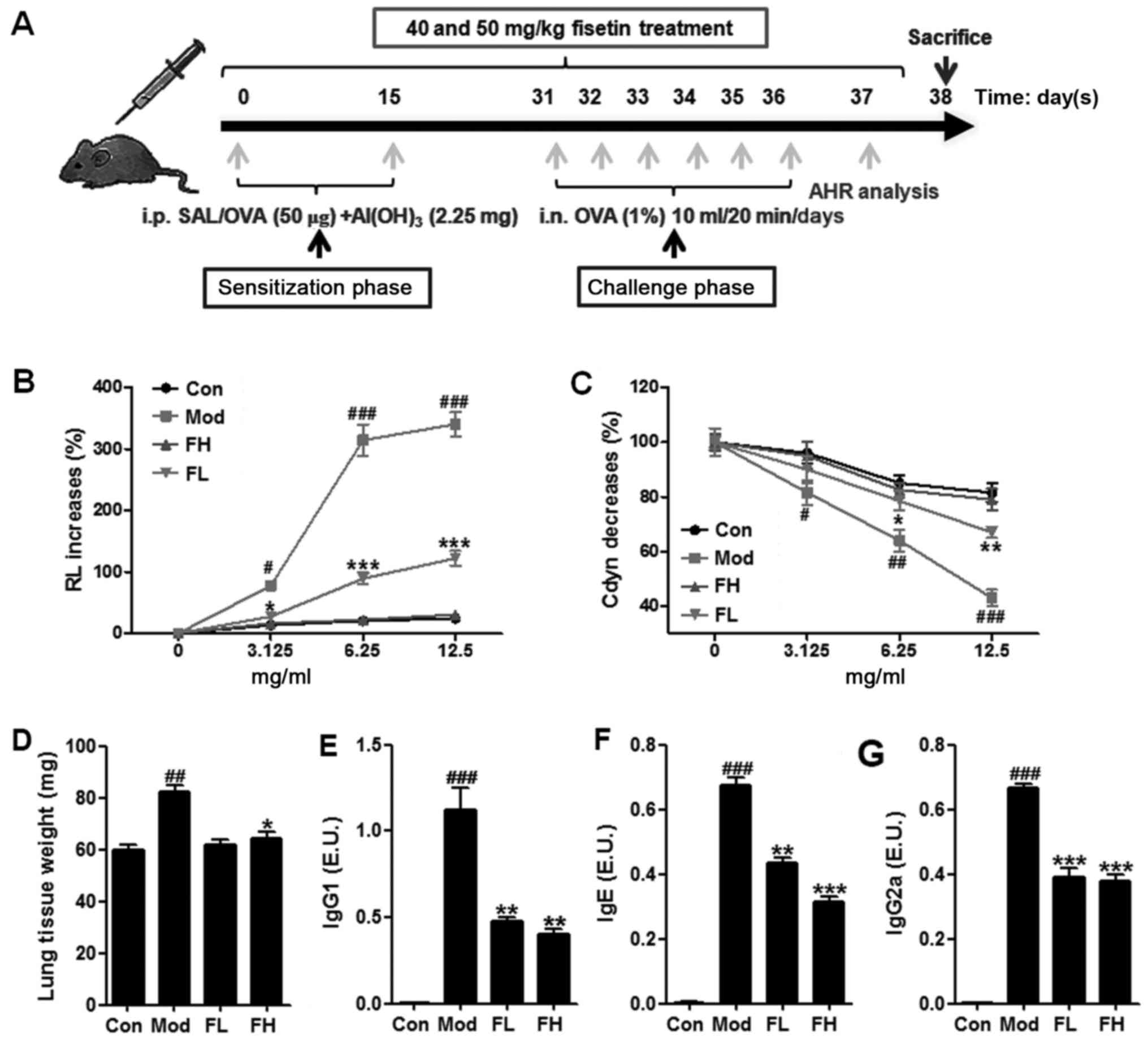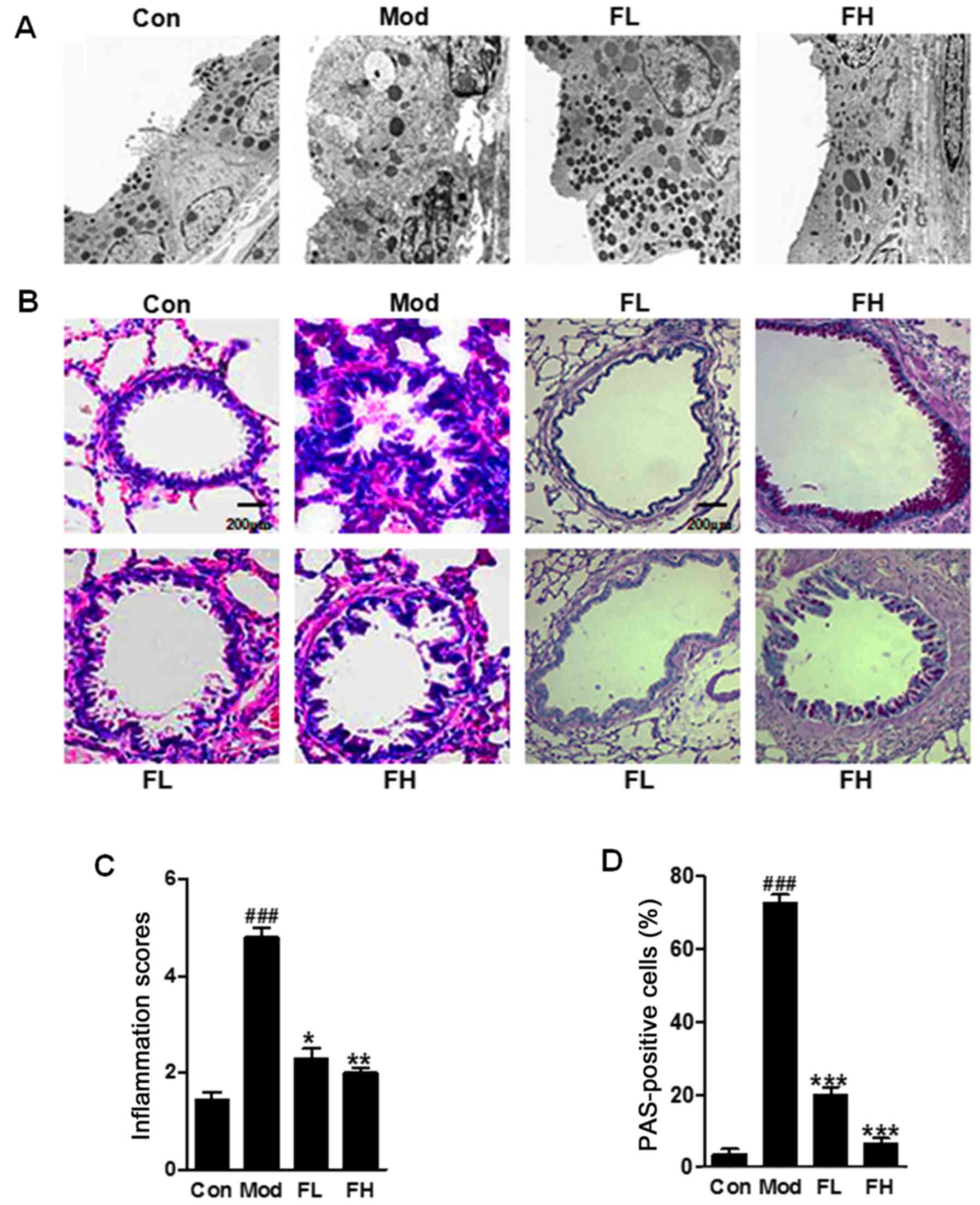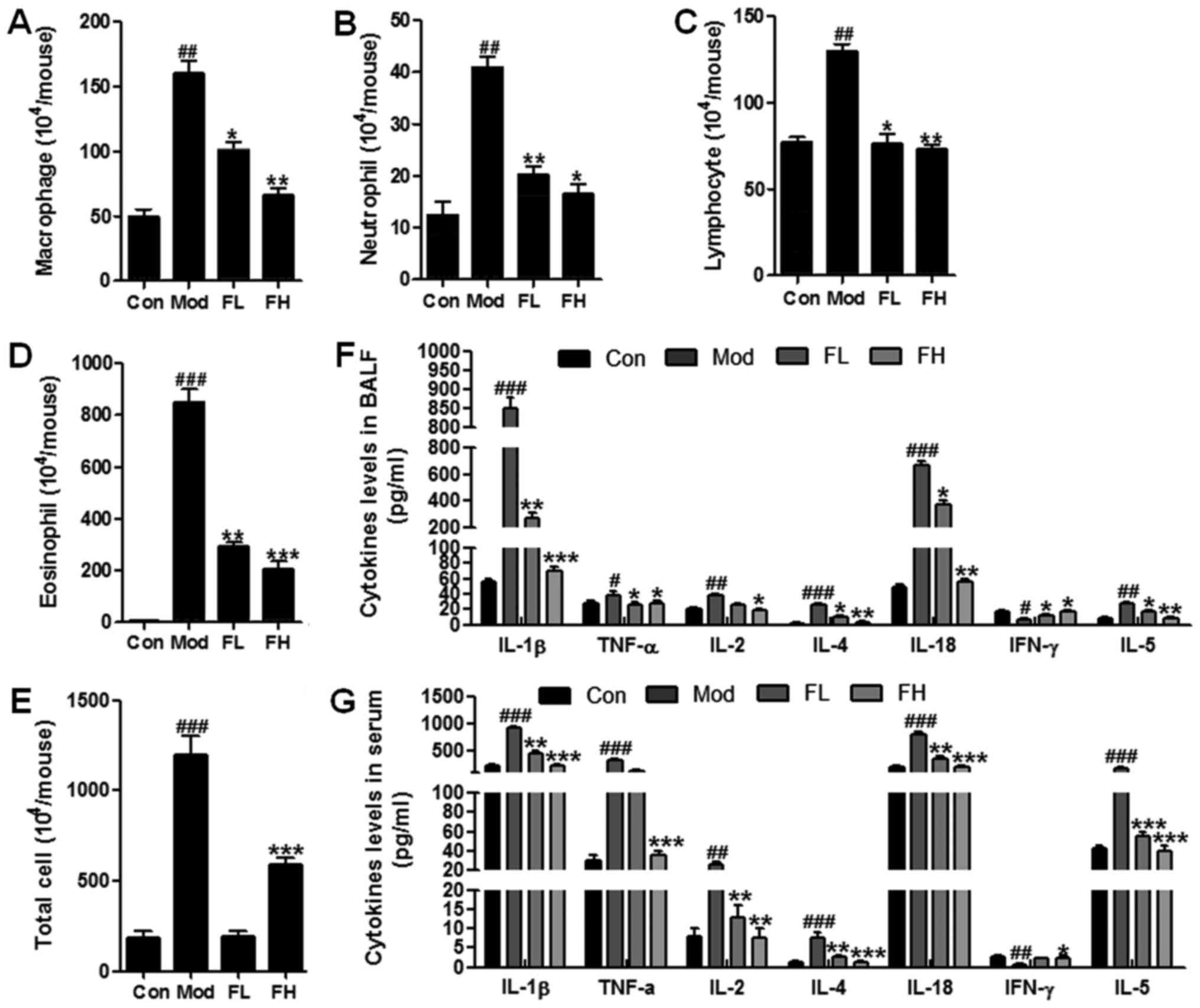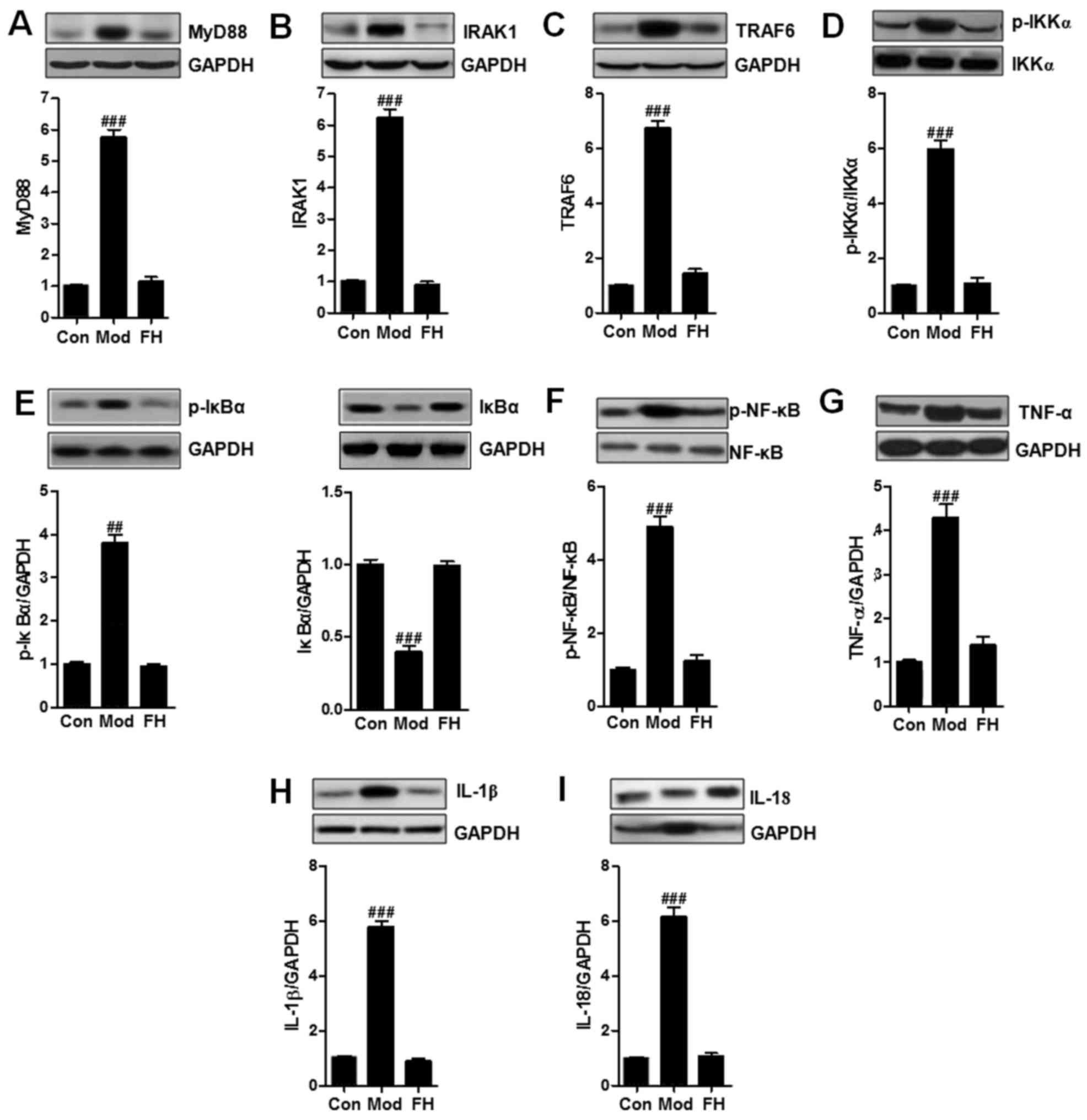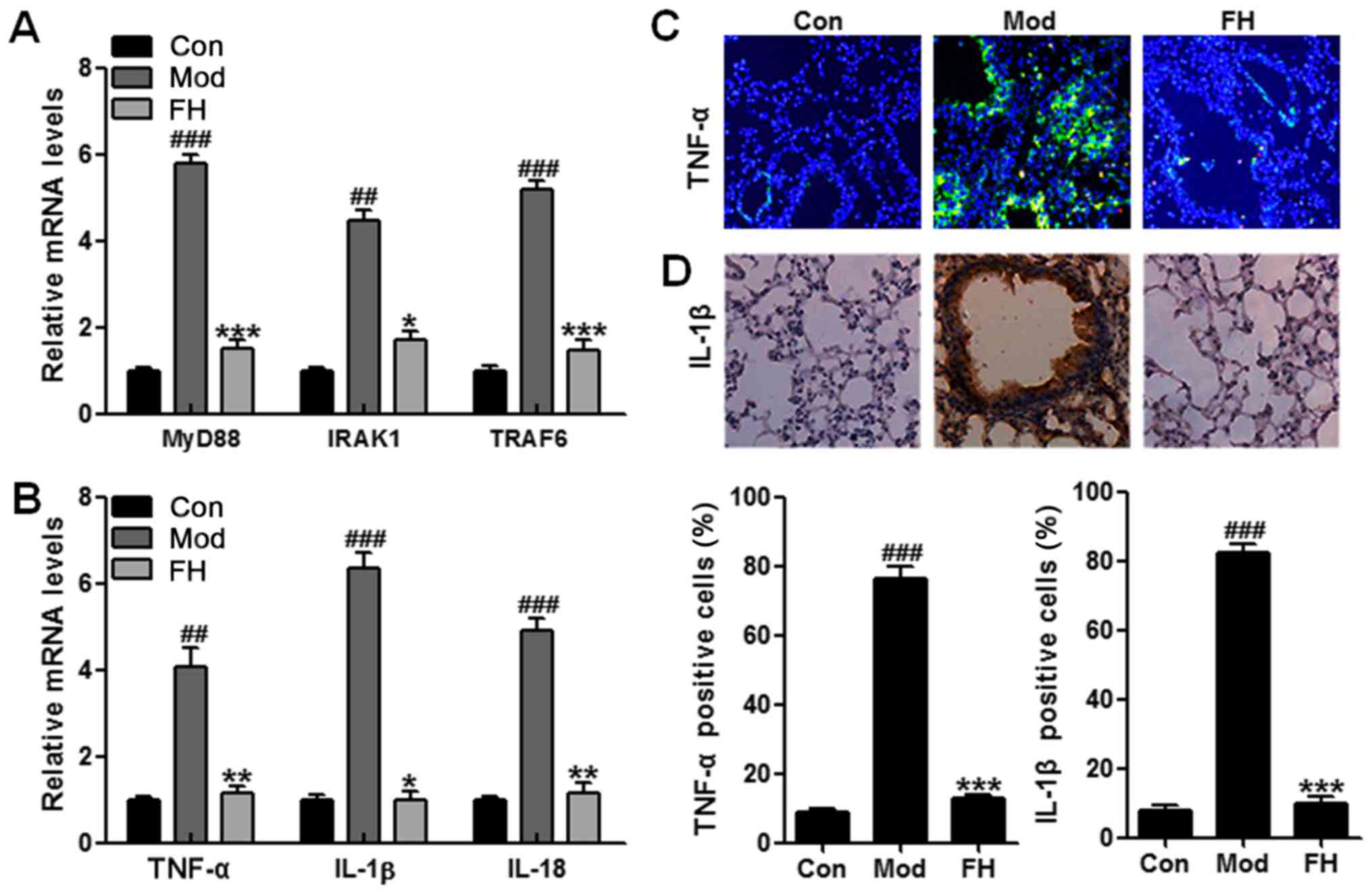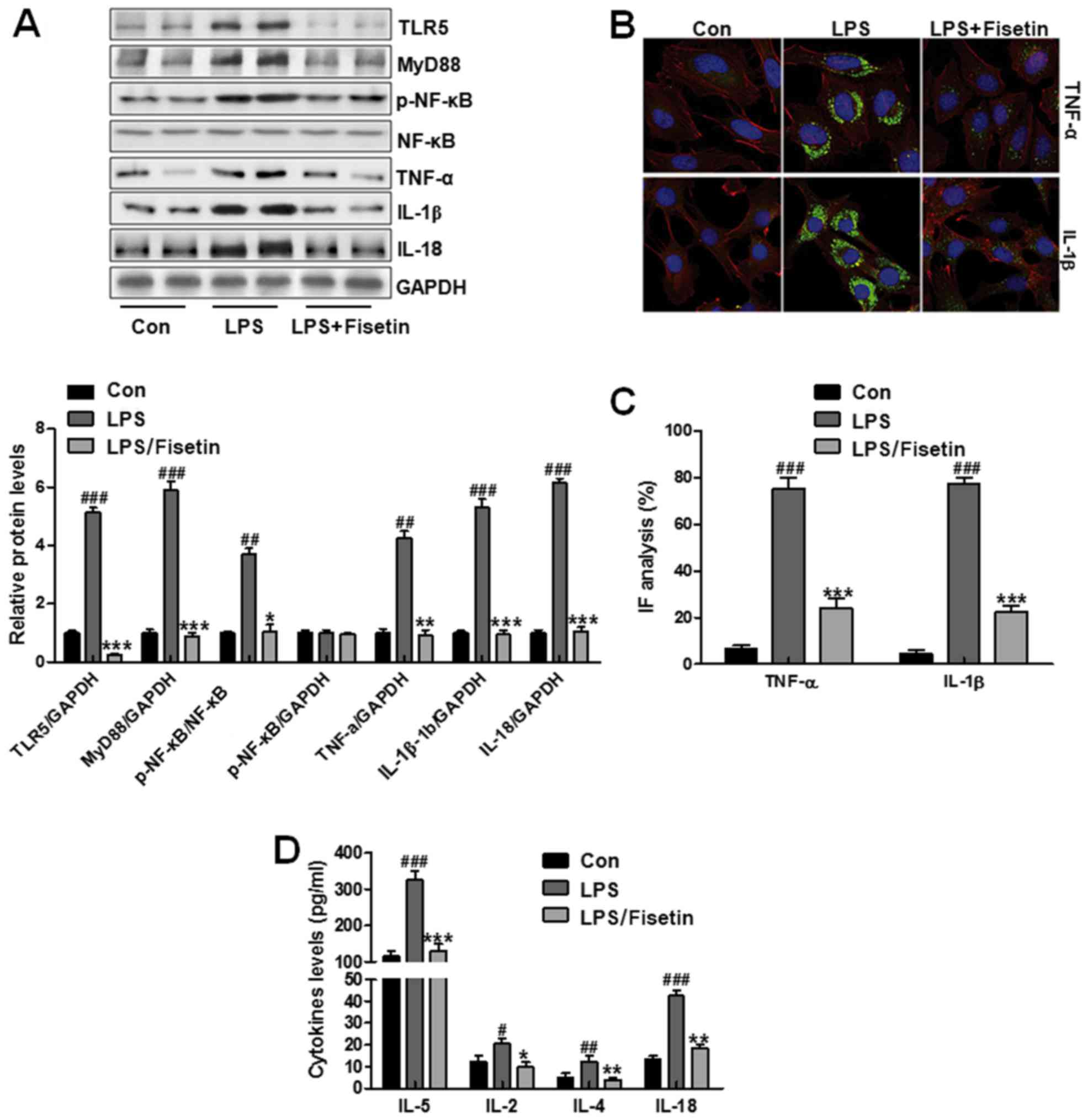|
1
|
Wood LG, Garg ML and Gibson PG: A high-fat
challenge increases airway inflammation and impairs bronchodilator
recovery in asthma. J Allergy Clin Immunol. 127:1133–1140. 2011.
View Article : Google Scholar : PubMed/NCBI
|
|
2
|
Masoli M, Fabian D, Holt S and Beasley R;
Global Initiative for Asthma (GINA) Program: The global burden of
asthma: executive summary of the GINA Dissemination Committee
report. Allergy. 59:469–478. 2004. View Article : Google Scholar : PubMed/NCBI
|
|
3
|
Sul B, Wallqvist A, Morris MJ, Reifman J
and Rakesh V: A computational study of the respiratory airflow
characteristics in normal and obstructed human airways. Comput Biol
Med. 52:130–143. 2014. View Article : Google Scholar : PubMed/NCBI
|
|
4
|
Blanc P, van Dyken S, Locksley R, Quinlan
PJ, Balmes JR, Iribarren C, Katz PP, Yelin EH, Trupin L and Eisner
MD: Chitin detection in home dust sampling. Am J Respir Crit Care
Med. 181:A46682010.
|
|
5
|
Zhu T, Zhang W, Wang DX, Huang NW, Bo H,
Deng W and Deng J: Rosuvastatin attenuates mucus secretion in a
murine model of chronic asthma by inhibiting the γ-aminobutyric
acid type A receptor. Chin Med J (Engl). 125:1457–1464. 2012.
|
|
6
|
Hendrich AB: Flavonoid-membrane
interactions: Possible consequences for biological effects of some
polyphenolic compounds. Acta Pharmacol Sin. 27:27–40. 2006.
View Article : Google Scholar
|
|
7
|
Cushnie TP and Lamb AJ: Recent advances in
understanding the antibacterial properties of flavonoids. Int J
Antimicrob Agents. 38:99–107. 2011. View Article : Google Scholar : PubMed/NCBI
|
|
8
|
Chiruta C, Schubert D, Dargusch R and
Maher P: Chemical modification of the multitarget neuroprotective
compound fisetin. J Med Chem. 55:378–389. 2012. View Article : Google Scholar
|
|
9
|
Gelderblom M, Leypoldt F, Lewerenz J,
Birkenmayer G, Orozco D, Ludewig P, Thundyil J, Arumugam TV,
Gerloff C, Tolosa E, et al: The flavonoid fisetin attenuates
postischemic immune cell infiltration, activation and infarct size
after transient cerebral middle artery occlusion in mice. J Cereb
Blood Flow Metab. 32:835–843. 2012. View Article : Google Scholar : PubMed/NCBI
|
|
10
|
Prakash D, Gopinath K and Sudhandiran G:
Fisetin enhances behavioral performances and attenuates reactive
gliosis and inflammation during aluminum chloride-induced
neurotoxicity. Neuromolecular Med. 15:192–208. 2013. View Article : Google Scholar : PubMed/NCBI
|
|
11
|
Salter M, Biggadike K, Matthews JL, West
MR, Haase MV, Farrow SN, Uings IJ and Gray DW: Pharmacological
properties of the enhanced-affinity glucocorticoid fluticasone
furoate in vitro and in an in vivo model of respiratory
inflammatory disease. Am J Physiol Lung Cell Mol Physiol.
293:L660–L667. 2007. View Article : Google Scholar : PubMed/NCBI
|
|
12
|
Hinz M and Scheidereit C: The IκB kinase
complex in NF-κB regulation and beyond. EMBO Rep. 15:46–61. 2014.
View Article : Google Scholar : PubMed/NCBI
|
|
13
|
Li M, Riddle SR, Frid MG, El Kasmi KC,
McKinsey TA, Sokol RJ, Strassheim D, Meyrick B, Yeager Me, Flockton
AR, et al: Emergence of fibroblasts with a proinflammatory
epigenetically altered phenotype in severe hypoxic pulmonary
hypertension. J Immunol. 187:2711–2722. 2011. View Article : Google Scholar : PubMed/NCBI
|
|
14
|
Edwards MR, Bartlett NW, Clarke D, Birrell
M, Belvisi M and Johnston SL: Targeting the NF-kappaB pathway in
asthma and chronic obstructive pulmonary disease. Pharmacol Ther.
121:1–13. 2009. View Article : Google Scholar
|
|
15
|
Li X, Chen Q, Chu C, You H, Jin M, Zhao X,
Zhu X, Zhou W and Ji W: Ovalbumin-induced experimental allergic
asthma is Toll-like receptor 2 dependent. Allergy Asthma Proc.
35:e15–e202014. View Article : Google Scholar : PubMed/NCBI
|
|
16
|
Sauer KA, Scholtes P, Karwot R and Finotto
S: Isolation of CD4+ T cells from murine lungs: A method
to analyze ongoing immune responses in the lung. Nat Protoc.
1:2870–2875. 2006. View Article : Google Scholar
|
|
17
|
Ji L, Xue R, Tang W, Wu W, Hu T, Liu X,
Peng X, Gu J, Chen S and Zhang S: Toll like receptor 2 knock-out
attenuates carbon tetrachloride (CCl4)-induced liver fibrosis by
downregulating MAPK and NF-κB signaling pathways. FEBS Lett.
588:2095–2100. 2014. View Article : Google Scholar : PubMed/NCBI
|
|
18
|
Hacha J, Tomlinson K, Maertens L,
Paulissen G, Rocks N, Foidart JM, Noel A, Palframan R, Gueders M
and Cataldo DD: Nebulized anti-IL-13 monoclonal antibody Fab'
fragment reduces allergen-induced asthma. Am J Respir Cell Mol
Biol. 47:709–717. 2012. View Article : Google Scholar : PubMed/NCBI
|
|
19
|
Arakawa M, Mita T, Azuma K, Ebato C, Goto
H, Nomiyama T, Fujitani Y, Hirose T, Kawamori R and Watada H:
Inhibition of monocyte adhesion to endothelial cells and
attenuation of atherosclerotic lesion by a glucagon-like peptide-1
receptor agonist, exendin-4. Diabetes. 59:1030–1037. 2010.
View Article : Google Scholar : PubMed/NCBI
|
|
20
|
Liou CJ, Cheng PY, Huang WC, Chan CC, Chen
MC, Kuo ML and Shen JJ: Oral lovastatin attenuates airway
inflammation and mucus secretion in ovalbumin-induced murine model
of asthma. Allergy Asthma Immunol Res. 6:548–557. 2014. View Article : Google Scholar : PubMed/NCBI
|
|
21
|
Reddy AT, Lakshmi SP and Reddy RC: Murine
model of allergen induced asthma. J Vis Exp. 63:e37712012.
|
|
22
|
Schepetkin IA and Quinn MT: Botanical
polysaccharides: Macrophage immunomodulation and therapeutic
potential. Int Immunopharmacol. 6:317–333. 2006. View Article : Google Scholar : PubMed/NCBI
|
|
23
|
Lloyd CM and Saglani S: T cells in asthma:
Influences of genetics, environment, and T-cell plasticity. J
Allergy Clin Immunol. 131:1267–1274; quiz 1275. 2013. View Article : Google Scholar : PubMed/NCBI
|
|
24
|
Redhu NS, Saleh A, Halayko AJ, Ali AS and
Gounni AS: Essential role of NF-κB and AP-1 transcription factors
in TNF-α-induced TSLP expression in human airway smooth muscle
cells. Am J Physiol Lung Cell Mol Physiol. 300:L479–L485. 2011.
View Article : Google Scholar
|
|
25
|
Hams E and Fallon PG: Innate type 2 cells
and asthma. Curr Opin Pharmacol. 12:503–509. 2012. View Article : Google Scholar : PubMed/NCBI
|
|
26
|
Perkins C, Yanase N, Smulian G, Gildea L,
Orekov T, Potter C, Brombacher F, Aronow B, Wills-Karp M and
Finkelman FD: Selective stimulation of IL-4 receptor on smooth
muscle induces airway hyperresponsiveness in mice. J Exp Med.
208:853–867. 2011. View Article : Google Scholar : PubMed/NCBI
|
|
27
|
Tanaka H, Nagai H and Maeda Y: Effect of
anti-IL-4 and anti-IL-5 antibodies on allergic airway
hyperresponsiveness in mice. Life Sci. 62:PL169–PL174. 1998.
View Article : Google Scholar : PubMed/NCBI
|
|
28
|
Finkelman FD, Hogan SP, Hershey GK,
Rothenberg ME and Wills-Karp M: Importance of cytokines in murine
allergic airway disease and human asthma. J Immunol. 184:1663–1674.
2010. View Article : Google Scholar : PubMed/NCBI
|
|
29
|
Fulkerson PC and Rothenberg ME: Targeting
eosinophils in allergy, inflammation and beyond. Nat Rev Drug
Discov. 12:117–129. 2013. View
Article : Google Scholar : PubMed/NCBI
|
|
30
|
Sakai E, Shimada-Sugawara M, Yamaguchi Y,
Sakamoto H, Fumimoto R, Fukuma Y, Nishishita K, Okamoto K and
Tsukuba T: Fisetin inhibits osteoclastogenesis through prevention
of RANKL-induced ROS production by Nrf2-mediated upregulation of
phase II antioxidant enzymes. J Pharmacol Sci. 121:288–298. 2013.
View Article : Google Scholar
|
|
31
|
Lee Se, Jeong SI, Yang H, Park CS, Jin YH
and Park YS: Fisetin induces Nrf2-mediated HO-1 expression through
PKC-δ and p38 in human umbilical vein endothelial cells. J Cell
Biochem. 112:2352–2360. 2011. View Article : Google Scholar : PubMed/NCBI
|
|
32
|
Higa S, Hirano T, Kotani M, Matsumoto M,
Fujita A, Suemura M, Kawase I and Tanaka T: Fisetin, a flavonol,
inhibits TH2-type cytokine production by activated human basophils.
J Allergy Clin Immunol. 111:1299–1306. 2003. View Article : Google Scholar : PubMed/NCBI
|
|
33
|
Chen YC, Shen SC, Lee WR, Lin HY, Ko CH,
Shih CM and Yang LL: Wogonin and fisetin induction of apoptosis
through activation of caspase 3 cascade and alternative expression
of p21 protein in hepatocellular carcinoma cells SK-HEP-1. Arch
Toxicol. 76:351–359. 2002. View Article : Google Scholar : PubMed/NCBI
|
|
34
|
Khan N, Afaq F, Syed DN and Mukhtar H:
Fisetin, a novel dietary flavonoid, causes apoptosis and cell cycle
arrest in human prostate cancer LNCaP cells. Carcinogenesis.
29:1049–1056. 2008. View Article : Google Scholar : PubMed/NCBI
|
|
35
|
Pavord ID, Korn S, Howarth P, Bleecker ER,
Buhl R, Keene ON, Ortega H and Chanez P: Mepolizumab for severe
eosinophilic asthma (DREAM): A multicentre, double-blind,
placebo-controlled trial. Lancet. 380:651–659. 2012. View Article : Google Scholar : PubMed/NCBI
|
|
36
|
Brooks GD, Buchta KA, Swenson CA, Gern JE
and Busse WW: Rhinovirus-induced interferon-gamma and airway
responsiveness in asthma. Am J Respir Crit Care Med. 168:1091–1094.
2003. View Article : Google Scholar : PubMed/NCBI
|
|
37
|
Akpinarli A, Guc D, Kalayci O, Yigitbas E
and Ozon A: Increased interleukin-4 and decreased interferon gamma
production in children with asthma: Function of atopy or asthma. J
Asthma. 39:159–165. 2002. View Article : Google Scholar
|
|
38
|
Yang SR, Yao H, Rajendrasozhan S, Chung S,
Edirisinghe I, Valvo S, Fromm G, McCabe MJ Jr, Sime PJ, Phipps RP,
et al: RelB is differentially regulated by IkappaB Kinase-α in B
cells and mouse lung by cigarette smoke. Am J Respir Cell Mol Biol.
40:147–158. 2009. View Article : Google Scholar
|
|
39
|
Gagliardo R, Chanez P, Profita M, Bonanno
A, Albano GD, Montalbano AM, Pompeo F, Gagliardo C, Merendino AM
and Gjomarkaj M: IκB kinase-driven nuclear factor-κB activation in
patients with asthma and chronic obstructive pulmonary disease. J
Allergy Clin Immunol. 128:635–45.e1, 2. 2011. View Article : Google Scholar
|
|
40
|
Bao Z, Guan S, Cheng C, Wu S, Wong SH,
Kemeny DM, Leung BP and Wong WS: A novel antiinflammatory role for
andrographolide in asthma via inhibition of the nuclear
factor-kappaB pathway. Am J Respir Crit Care Med. 179:657–665.
2009. View Article : Google Scholar : PubMed/NCBI
|
|
41
|
Xiao M, Zhu T, Zhang W, Wang T, Shen YC,
Wan QF and Wen FQ: Emodin ameliorates LPS-induced acute lung
injury, involving the inactivation of NF-κB in mice. Int J Mol Sci.
15:19355–19368. 2014. View Article : Google Scholar : PubMed/NCBI
|















